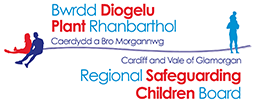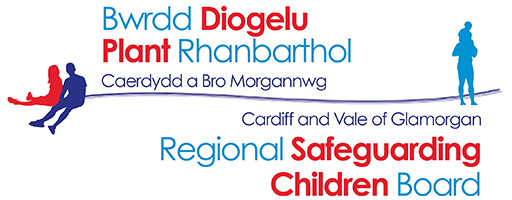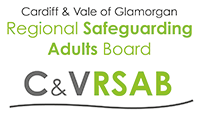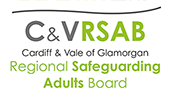What is Domestic Abuse?
There are many different forms of domestic abuse.
The cross UK government definition of domestic violence and abuse defines Domestic Abuse as:
“Any incident or pattern of incidents of controlling, coercive or threatening behaviour, violence or abuse between those aged 16 or over who are or have been intimate partners or family members regardless of gender or sexuality”.
There are many different forms of domestic abuse. These include but are not limited to:
- emotional / psychological abuse
- physical abuse
- sexual abuse
- financial abuse
- harassment and stalking.
- Coercively controlling behaviour
- (Coercive/controlling behaviour is a an act or a pattern of acts such as humiliation, intimidation, threats or other abuse that is used to harm, punish or frighten their victim. The behaviour is designed to make a person subordinate and/or dependent by isolating them from sources of support and depriving them of the means needed for independence, resistance and escape and regulating their everyday behaviour).
Who can be affected by Domestic Abuse?
Domestic abuse can happen to anyone regardless of; age, gender, nationality, ethnicity, sexuality, economic status or background.
There are different kinds of abuse that can happen in different contexts. The most common type of domestic abuse occurs in relationships. But the definition of domestic abuse also covers abuse between family members, such as adolescent to parent violence and abuse.
Adolescent to parent violence and abuse (APVA)
Adolescent to parent violence and abuse is any behaviour used by a young person to control, dominate or coerce parents. It is intended to threaten and intimidate and puts family safety at risk. APVA can be referred to in a number of different ways, including ‘parent abuse’, ‘child to parent abuse’ (CPV), or ‘battered parent syndrome’.
APVA is likely to involve a pattern of behaviour, which can include physical violence and other types of abusive behaviours towards a parent (including damage to property, emotional abuse, and economic/financial abuse). Violence and abuse can occur together or separately.
Some families experiencing APVA have a history of domestic violence and abuse. In other cases the violence may be linked to other behavioural problems, substance abuse, mental health problems, or learning difficulties.
As well as living in fear of assault, parents who are abused by their children may experience feelings of shame and blame, and can be reluctant to report the problem.
It is important that both the individual being abused and the young person who is using abusive behaviour receive the right support.
An animation on the issue of child on parent domestic abuse has been produced by the Merthyr Tydfil Borough Wide Youth Forum entitled ‘In My House’. To view the animation click here.
Domestic abuse is NOT acceptable. If you, or somebody you know, is experiencing domestic abuse, you are not alone. Help and support is available.
If you or someone else is immediate danger, call the Police on 999
(for silent help dial 999 and then press 55 when you hear the operator).
Help and Support
Local Specialist Support Services:
RISE-Cardiff
Phone lines are open 24 hours a day, 7 days a week to offer support, advice and a place of safety if needed.
Tel (029) 2046 0566
If talking isn’t safe and you need a silent method of contact you can also access these services:
Text service on 07723 714 334
webchat at https://rise-cardiff.cymru
or contact the team via email reception@rise-cardiff.cymru
Atal-y-Fro
Support is available 24 hours, 7 days a week.
Tel 0808 80 10 800
Male Victims
The Dyn Project
The Safer Wales Dyn project provides support to Heterosexual, Gay, Bisexual
and Trans men who are experiencing Domestic abuse from a partner.
Tel: 02920 220033 Mon and Tue 10.00am to 4.00pm, Wed 10.00am to 1.00pm
Email: support@dynwales.org
Mankind
UK’s leading charity for supporting male victims of abuse.
Confidential helpline for all male victims of domestic abuse and domestic violence perpetrated by their current or former wife or partner (including same-sex partner).
Tel: 01823 334244 Monday to Friday 10am – 4pm
Email: admin@mankind.org.uk
Parallel Lives: for support in Cardiff and Vale with Child/Adolescent to Parent Violence/Abuse (run by Media Academy). Telephone 07788274952 or email megan@mediaacademycardiff.org
National Helplines:
Live Fear Free – is a Welsh Government helpline, providing information and advice for anyone experiencing domestic abuse, sexual violence and other forms of violence.
Free 24 hour helpline: 0808 8010 800
info@livefearfreehelpline.wales
Website: http://livefearfree.gov.wales/
Victims of Stalking
Alongside the local specialist services above, the following websites also provide information and support:
Hollie Gazzard Trust: support for those experiencing domestic abuse, especially stalking, and their families and friends. In addition they have the Hollie Guard App which is a smartphone All that provides enhanced levels of protection. Website https://holliegazzard.org/
Forced Marriage Unit Helpline
Advice and support to victims of forced marriage
020 7008 0151
Worried about your own behaviour?
Respect
For those who are concerned about their own use of violence or abuse:
Tel: 0808 802 4040
https://respectphoneline.org.uk/
Resources
The following resources/factsheets cover issues in relation to Honour Based Violence, Forced Marriage, which are recognised as forms of domestic abuse.
A guide for victims and survivors of domestic abuse during COVID-19



